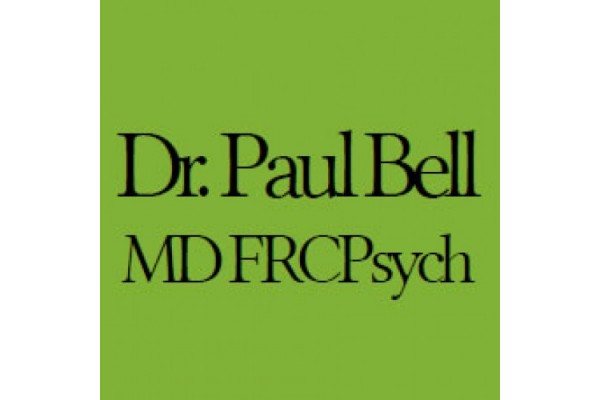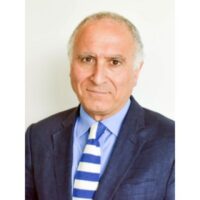Description
Dr Paul Bell
Having previously held consultancy roles in Trauma psychiatric and mental health, Dr. Paul Bell has the experience and knowledge of acting in an advisory consultant role for psychiatry issues. He has also been appointed Chairman of several working groups and often lectures at Universities or within training courses for new doctors and psychiatric trainees.
Dr. Bell was appointed the Clinical Director for Treatment Services for the South and East Belfast Trust in 1994 and later, in 1998 became the Trust’s Medical Director. He was appointed at a time when the mental health and learning disability division of the Belfast Trust faced huge challenges with child protection, public safety and patient safety. He excelled on all levels.
Dr. Paul Bell has acted as an Expert Witness for the last 20 years and has appeared in the High Court on many occasions. He predominantly acts on behalf of treatment of PTS Disorder and child protection. In the early days, Post Traumatic Stress Disorder was a controversial subject but, with published papers providing evidence that the disorder did exist, it has become a more viable defence.
Post Traumatic Stress Disorder is a psychological injury, which improves over the course of a year and a half in most cases. Whereas physical injuries are obvious to the court, the psychological disorder manifests itself, usually at night and the individual hides the illness from family, friends and in a lot of cases, their doctor. Sufferers have the idea that their suffering is normal within circumstances of life threatening scenarios and high pressure however, in-depth medical reports prove otherwise.
Case History
A fifty year old man has been attending psychiatrists, diagnosed as suffering from low mood, anxiety and depression, personality disorder and substance abuse.
After a television programme, he sought the assistance of a solicitor in seeking compensation for childhood sexual abuse, carried out in a private school by teachers when he was between the ages of eight and ten.
He had not previously disclosed the sexual abuse to anyone.
Dr. Bell was employed as an Expert Witness and interviewed the client at some length, especially in regards to the alleged sexual abuse.
He gave a clear history of being sexually abused by a teacher at his school. This happened on a weekly basis and involved full penetrative homosexual sex. He was ashamed of what had happened and it caused him to have various distressing psychological symptoms at the time.
He told Dr. Bell that he had been seen by psychiatrists on and off for the past twenty years and has had various diagnoses including substance abuse, personality disorder and anxiety and depression. He had not previously disclosed to a mental health professional about his sexual abuse in childhood.
When describing to his sexual abuse in childhood, it was clearly traumatic and he felt a lot of guilt about the fact he perceived himself at least partially to blame for the sexual activities. This is the reason why he had not previously disclosed.
These features of classic Post Traumatic Stress Disorder, were complicated by additional features often seen in individuals who have suffered sexual abuse. These include an aversion to any sexual activity, mistrust of men and symptoms of obsessional cleanliness, with hand washing, which took place up to twelve times a day.
His Post Traumatic symptoms were also complicated by one of the recognised complications of Post Traumatic Stress Disorder namely poly substance abuse, which had coloured his psychiatric presentations over the years.
And at the same time, the fact that he had been sexually abused by an authority figure meant he had a mistrust and disrespect for authority figures leading to conflict with doctors and mental health professionals at many stages in the past.
When Dr. Bell obtained a copy of his GP notes, it was clear that his previous diagnosis of personality disorder, substance abuse and anxiety and depression, were all consistent with the symptoms of complex Post Traumatic Stress Disorder, which he reported.
The major new symptom that he described, which was not contained in his medical notes, was the fact that he was having recurrent nightmares about his sexual abuse. He had not revealed this symptom to mental health professionals at an earlier stage because he did not wish anyone to know about the sexual abuse which took place in childhood.
This stigma and shame over childhood sexual abuse is probably more prominent at the time when this man was growing up but it led to a difficult relationship with mental health professionals and thus his core symptoms of Post Traumatic Stress Disorder were not identified until he was seen for medical legal purposes.
The case went to court and the client obtained substantial damages for psychological injuries. The court concluded that all of this man’s long term mental health difficulties were due to long term personality changes, as a result of chronic Post Traumatic Stress Disorder.
The case illustrates the fact that especially in cases where there is an element of shame, the symptoms of Post Traumatic Stress Disorder can be overlooked even by mental health professionals who have been engaged with the patient for many years
As a junior doctor, Dr. Bell took part in research into Post Traumatic Stress Disorder.
The research project, which took place in 1983 investigated the psychological effects of the Northern Ireland ‘troubles’ and lead to the first European paper on PTSD- covering the experience of over 700 victims of violence and published in The Lancet and in Acta Psychiatrica Scandinavica.
The study found that individuals who were, or felt, threatened or suffered a near death experience did not fit the typical ‘Vietnam War veteran’ stereotype and compared all individuals seeking compensation – those who were suffering from Post Traumatic Stress Disorder and those who were not.
Following the study, Dr. Bell developed papers in collaboration with the law faculty Queens University, Belfast and also a computer research programme which highlighted that most survivors were conscious about surviving the experience and also felt a sense of guilt which played a big part in the symptoms of Post Traumatic Stress Disorder that they were experiencing.
Dr bell published research papers on the psychological effects of the keg worth air disaster and the Eniskillen bombing Leading on from his research into the problems in Northern Ireland, Dr. Bell has been heavily involved in the writing of international conferences/textbooks in America and Europe, as well as research publications, notably; ‘Post Traumatic Stress Disorder and Civil Violence in Northern Ireland.’
Dr. Bell was part of the World Health Organisation working group which was formed in 1989 and also contributed to the team which drew up the CREST guidelines for Post Traumatic Stress Disorder in 2003. developed model based on investigations into traumatic memories, flashbacks and nightmares.
For further information,
please contact
Dr. Paul Bell on 02895046345
or email enquiries to
paulbell451@aol.com




